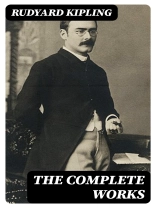Rudyard Kipling’s ‘The Complete Works’ encapsulates an extensive oeuvre that spans poetry, short stories, and novels, reflecting the multifaceted nature of the British Empire and the complexities of imperial identity. Characterized by vivid prose and rhythmic poetry, Kipling’s writing showcases his mastery of various forms, bringing forth a unique blend of realism and exoticism that explores themes of duty, honor, and the intersection of cultures. From the enchanting tales of ‘The Jungle Book’ to the poignant verses of ‘If—, ‘ Kipling’s literary style is both evocative and incisive, offering readers a glimpse into the socio-political fabric of his time while navigating personal and communal narratives that resonate across generations. Rudyard Kipling, born in 1865 in Bombay, India, was profoundly shaped by his experiences in colonial settings. His upbringing in India before being sent to England likely fueled his fascination with the interplay of East and West, reflected throughout his works. An accomplished journalist as well as an author, Kipling’s keen observations on colonial life imbue his writings with authenticity, making his stories both compelling and thought-provoking. He was awarded the Nobel Prize in Literature in 1907, a testament to his significant contributions to the literary world. This compendium of Kipling’s works is invaluable not only for literature enthusiasts but also for those interested in the themes of imperialism, cultural exchange, and identity. Readers are invited to delve into his rich narrative landscapes, gaining insights into the complexities of a bygone era. With depth and nuance, ‘The Complete Works’ stands as a profound literary achievement that remains relevant, inviting contemplation and conversation in today’s heterogeneous world.
Mengenai Pengarang
Rudyard Kipling (1865–1936), an English journalist, short-story writer, poet, and novelist, was born in Bombay, British India, and is often considered one of the major innovators of the art of the short story. His children’s books are enduring classics of children’s literature, and his best-known works include ‘The Jungle Book’ (1894), ‘Kim’ (1901), and the poem ‘If—’ (1910). Kipling is also known for ‘Just So Stories’ (1902) and ‘The Man Who Would Be King’ (1888), among other stories. His literary style is characterized by his experiences in India and his vivid imagination, reflecting the imperialism and the milieu of the British Empire in his era. In fiction, he made significant contributions to the genre of the spy novel and the celebration of British imperial adventure. Furthermore, his poetic works, such as ‘Gunga Din’ and ‘The White Man’s Burden, ‘ have elicited both acclaim for their technical mastery and criticism for their colonial attitudes. In 1907, Kipling was awarded the Nobel Prize in Literature, becoming the first English-language writer to receive the prize, and to date he remains its youngest recipient. His complete works showcase the breadth of Kipling’s literary prowess and continue to be studied and appreciated for their narrative artistry and cultural insights.












